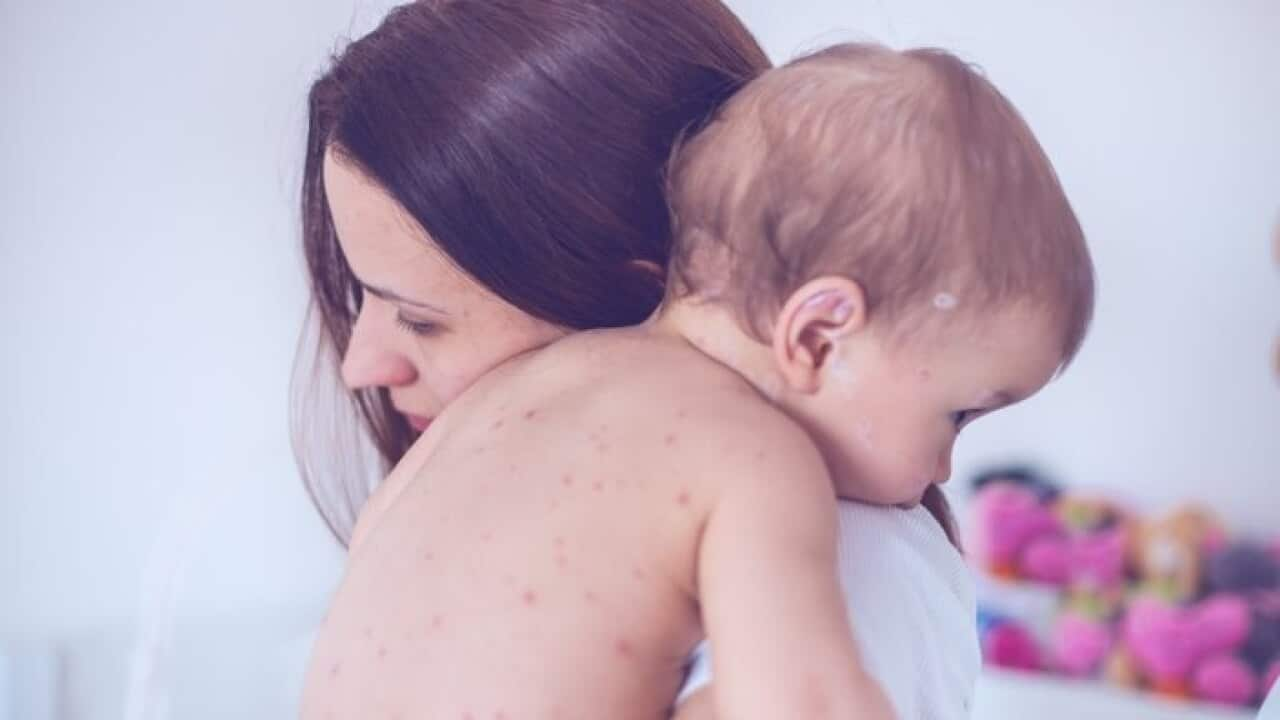The federal government and GPs are working to find alternatives after pharmaceuticals manufacturer GlaxoSmithKline Australia reported that two of its measles vaccines are facing supply constraints.
GSK Australia said its supply of Priorix Tetra and Priorix are in short supply this season, affected by the increase in demand following measles outbreak control programs in Australia.
In a statement, the manufacturer said alternatives have already been found to ensure no impact to vaccines for children involved in the National Immunisation Program (NIP).
"GSK has worked with the Commonwealth Department of Health to ensure that an alternative MMRV vaccine will be available during this time, ensuring no impact to children’s immunisations as part of the NIP."
It said the next batch of vaccines are expected in October.
GPs report rationing supply
Australian Medical Association president Tony Bartone acknowledged the supply constraints had meant GPs were rationing the current supply.
"Many of our members are reporting some difficulties in obtaining supplies and in some cases having to appropriately ration supplies to necessary cases."
The federal health department said arrangements have been made to ensure "adequate supplies" for the NIP.
Dr Bartone said the public health message to get vaccinated is still particularly relevant for those planning to travel to tourist hotspots in southeast Asia where Australians have been infected with measles.
"Measles knows no boundaries and all people should be very clear about their status [of immunity to measles] and have that conversation with their family doctor," Dr Bartone said.
"People for whom English is not their first language may not be aware of this message; and of course, the adequate information and public health campaigns needs to be advising of this in as many languages as necessary to ensure the message is being heard loud and clear."
He said GPs within the AMA network are working to source alternative measles vaccines from other manufacturers and would be monitoring the situation.
Global supply constraints
Up until 5 April this year, there have been 83 cases reported nationally, compared to 103 cases in 2018.
The most recent cases have involved Australians recently returned from southeast Asia and also New Zealand.
Dr Bartone said certain adults are more vulnerable to being infected with measles.
"What is at risk are those vaccine protocols outside of the [National Immunisation Program]. That is to adults in particular who might be travelling overseas, to adults who have evidence of falling immunity, especially those born between 1966 and 1994 where typically [it was a] one-dose policy with the measles vaccination, and what is now best practice which is a two-dose vaccine."
Dr Bartone said the increase in measles cases in Australia has been compounded by the global market supply chain issues.
"Demand requirements are part of a global vaccine market. Unfortunately, Australia is at the end of that global market supply chain.
"There is a lag time between supply of vaccine and intention to produce and supply the vaccine. It is not something you can flip the switch and produce overnight."
AMA urges universal catch-up vaccinations
The AMA has also urged the federal government to fund universal catch-up vaccinations for all Australians through the NIP.
"We are seeing a rise in reported cases. We are seeing a rise in cases affecting babies prior to their being 12 months of age. So we need to be doing the best we can to protect all Australians," Dr Bartone said.
"And a universal catch-up program would be the way to restore herd immunity right across the Australian landscape at above 95 per cent or more."
In response to the increase number of cases this year, the recommendations in the Australian Immunisation Handbook have been updated to allow for infants as young as 6 months to get vaccinated ahead of travel to highly endemic areas and during outbreaks.
Adults born after 1966 are of particular concern as they may have had only one vaccine dose.
Two doses of measles vaccines, taken six months apart, are required for the greatest protection against the viral infection.
The vaccine is free for those up to the age of 20 and is also available on prescription.
The annual number of measles cases in Australia has ranged between 10 and 340 since 2000, with the spike attributed to returned travellers.
Symptoms of the disease include fever, sore eyes and cough followed three or four days later by a red, blotchy rash spreading from the head and neck to the rest of the body.


